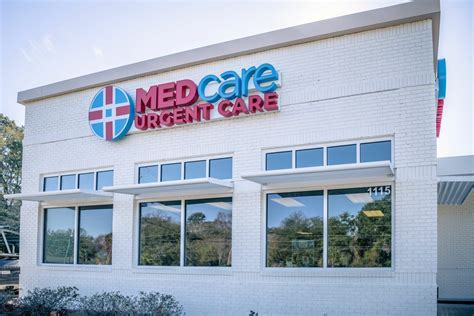Intro
Get instant relief with urgent care appointments. Learn how to book same-day appointments for non-life-threatening conditions, such as minor injuries, illnesses, and vaccinations. Discover the benefits of urgent care, including reduced wait times, lower costs, and convenient locations. Find out what to expect during your visit and how to prepare.
In today's fast-paced world, medical emergencies can arise at any moment, and seeking immediate attention is crucial. However, not all medical issues require a trip to the emergency room. This is where urgent care appointments come in – a convenient and cost-effective solution for non-life-threatening medical conditions. In this article, we will delve into the world of urgent care appointments, exploring their benefits, working mechanisms, and what to expect during a visit.

What is Urgent Care?
Urgent care centers provide immediate attention for non-life-threatening medical conditions that require prompt treatment. These centers are equipped to handle a wide range of medical issues, from minor injuries and illnesses to more complex conditions. Urgent care centers are usually staffed by board-certified physicians, nurse practitioners, and other medical professionals who are trained to provide high-quality care.
Benefits of Urgent Care Appointments
Urgent care appointments offer several benefits, including:
- Convenience: Urgent care centers have extended hours, including evenings and weekends, making it easier to schedule an appointment at a time that suits you.
- Cost-effective: Urgent care appointments are generally less expensive than emergency room visits, with costs ranging from $50 to $200 per visit.
- Quick turnaround: Urgent care centers are designed to provide fast and efficient care, with most visits lasting around 30 minutes to an hour.
- Comprehensive care: Urgent care centers can provide a wide range of services, including lab tests, X-rays, and prescription medication.
What to Expect During an Urgent Care Appointment
During an urgent care appointment, you can expect the following:

- Check-in and paperwork: Upon arrival, you will be asked to fill out paperwork and provide identification and insurance information.
- Initial assessment: A medical professional will conduct an initial assessment to determine the severity of your condition.
- Examination and diagnosis: The medical professional will perform a thorough examination and diagnosis to determine the cause of your symptoms.
- Treatment and medication: Depending on the diagnosis, the medical professional may provide treatment, prescribe medication, or recommend further testing.
- Follow-up care: The medical professional will provide instructions for follow-up care and schedule any necessary appointments.
Common Conditions Treated at Urgent Care Centers
Urgent care centers can treat a wide range of medical conditions, including:
- Colds and flu
- Sprains and strains
- Minor injuries (cuts, scrapes, and burns)
- Urinary tract infections
- Skin infections
- Allergies
- Minor asthma attacks
How to Prepare for an Urgent Care Appointment
To ensure a smooth and efficient visit, it's essential to prepare for your urgent care appointment:

- Gather medical information: Bring any relevant medical records, including test results and medication lists.
- Arrive early: Plan to arrive at least 15 minutes before your scheduled appointment time.
- Be prepared to ask questions: Write down any questions or concerns you have about your condition.
What to Do After an Urgent Care Appointment
After an urgent care appointment, it's essential to follow the medical professional's instructions and recommendations:
- Take medication as directed: Follow the medication instructions provided by the medical professional.
- Attend follow-up appointments: Schedule any necessary follow-up appointments to ensure proper care.
- Monitor your condition: Keep track of your symptoms and report any changes to the medical professional.
Conclusion
Urgent care appointments offer a convenient and cost-effective solution for non-life-threatening medical conditions. By understanding the benefits, working mechanisms, and what to expect during a visit, you can make informed decisions about your healthcare. Don't hesitate to seek medical attention if you're experiencing symptoms that require immediate attention.

We encourage you to share your thoughts and experiences with urgent care appointments in the comments section below. Have you ever visited an urgent care center? What was your experience like?
What is the difference between urgent care and emergency care?
+Urgent care is designed for non-life-threatening medical conditions, while emergency care is for life-threatening conditions that require immediate attention.
Do I need to make an appointment for urgent care?
+No, most urgent care centers accept walk-ins, but it's recommended to call ahead to confirm availability.
Can I get a prescription at an urgent care center?
+Yes, urgent care centers can provide prescriptions for a wide range of medical conditions.
